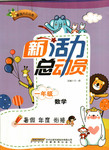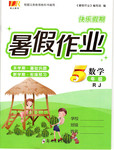题目内容
We often talk ________ each other ________ lunchtime.
- A.to, at
- B.about, in
- C.with, in
- D.about, on
talk sb. at lunchtime with

 新活力总动员暑系列答案
新活力总动员暑系列答案 龙人图书快乐假期暑假作业郑州大学出版社系列答案
龙人图书快乐假期暑假作业郑州大学出版社系列答案Afternoon tea
People believe that an English lady, Anna, first introduced the idea of afternoon tea. In the 18th and 19th centuries, the English ate only two main meals each day: breakfast and a heavy supper that would last for several hours in the evening. As a result, people often got very hungry during the long wait between these two meals. To solve this problem, Anna came up with the clever idea of inviting some friends to join her for an afternoon meal between four and five o’clock. This meal included cakes and sandwiches. And tea was served(供应) to wash down the food. In order to make this afternoon meal important, fine china cups and plates and silver teapots, knives, forks and spoons were used. Soon, afternoon tea parties became popular social occasions. Today, afternoon tea parties continue to play an important part in the social life in modern Britain.
Will you come for coffee?
Coffee also has an important role in British culture. People often use the words “Will you come for coffee” to mean “Would you like to come to my home for a chat?” Normally, several different drinks such as tea, hot chocolate or a soft drink like orange juice will be served as well as coffee, and you will be asked what you would like. However, you will not normally be offered wine at a “coffee” party.
Coffeehouses and the London Stock Exchange
In the 17th century London, coffeehouses were busy and noisy places. Businessmen and bankers went to coffeehouses to do their business, as well as to drink coffee. In fact, the London Stock Exchange(伦敦股票交易所) is believed to have started from these coffeehouses.
【小题1】Anna introduced the idea of drinking afternoon tea because she ______.
| A.enjoyed chatting with her friends at home |
| B.loved fine tea and beautiful china tea cups |
| C.wanted to share nice food with her friends |
| D.found people felt hungry during the long wait between the two meals |
| A.集体婚礼 | B.社交活动 | C.社区表演 | D.公共场合 |
| A.will be offered coffee only |
| B.are asked what you would like to drink |
| C.will be asked to have a chat with him or her |
| D.you are invited to take part in an afternoon tea party |
| A.a new business was started in coffeehouses. |
| B.coffeehouses are still used by businessmen and bankers. |
| C.businessmen and bankers went to coffeehouses just for coffee. |
| D.most people wouldn’t like to go to coffeehouses because of the noise. |
| A.British and Chinese cultures. | B.The beginning of Tea and Coffee. |
| C.Coffeehouse and Business. | D.English tea and coffee culture. |
Fashion isn’t very environmentally-friendly because it makes people buy things they don’t need, just because they’re new. We want to take care of the environment, we don’t want to pollute the air and we don’t want to waste energy and resources. But we also want to be fashionable. How can we buy fashionable clothes and protect the environment?
Old styles are fashionable again, so one way is to buy second-hand clothes — recycled clothes. Another way is to buy’ fair trade clothes. These clothes are either recycled or made in a ’ way that protects the environment. They also protect the people who make the clothes.
Surprisingly, white cotton is one of the least environmentally-friendly crops of all. To protect the cotton, the growers use chemicals that pollute water, make farm workers ill and kill wildlife. New materials, such as hemp and bamboo, grow quickly and are more environmentally-friendly. These materials are very soft, and look fantastic. The best materials are coloured using natural dyes, made from plants.
Environmentally-friendly clothes are practical but until now they were often dull. Now fashion-designers are working with these materials and the clothes are beautiful as well. So now we can buy fashionable clothes that are also environmentally-friendly.
【小题1】Why do people often buy things they don’t need? Because_.
| A.new things can be more comfortable |
| B.everyone wants to be fashionable |
| C.people are richer than before now |
| D.people care about the environment |
| A.Recycled fashion. | B.The problem with fashion. |
| C.Fashion doesn’t have to pollute. | D.New materials. |
| A.Materials soft and looking fantastic. |
| B.Any materials coloured using natural dyes. |
| C.Hemp and bamboo. |
| D.White cotton. |
| A.people pay more attention to our environment |
| B.environmentally-friendly clothes are practical |
| C.all old styles become fashionable again |
| D.fashion-designers are working to make them beautiful |
| A.Cotton or Hemp and Bamboo? |
| B.Environmentally-friendly Clothes |
| C.Old Style, New Fashion Again |
| D.Fashion and the Environment |